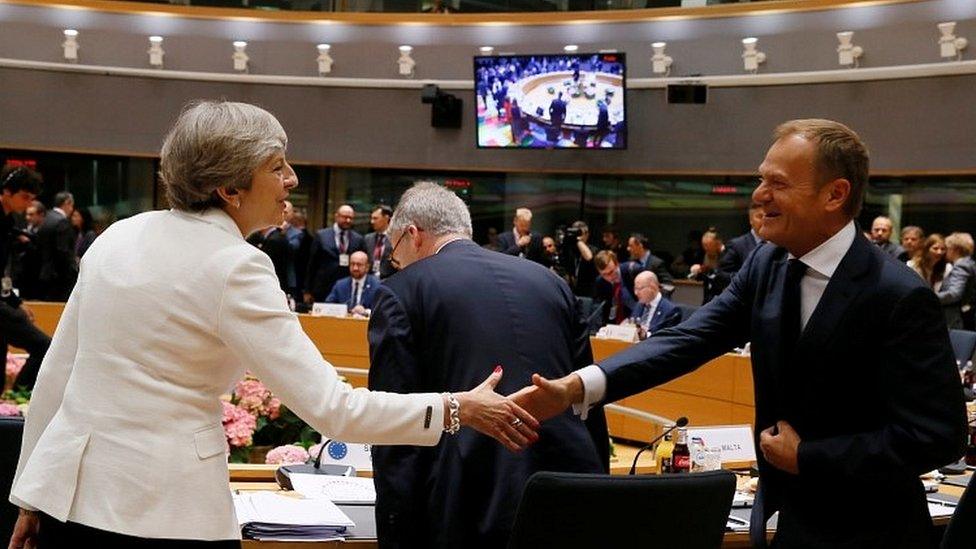Brexit couples react to deal: Anxiety put to rest or not?
- Published
Theresa May sets out 'offer' on EU citizens' rights
Theresa May has announced plans designed to put "anxiety at rest" among EU citizens living in the UK and British citizens living in Europe.
In the wake of Britain's decision to leave the EU, many people living in the UK and in EU member states have sought clarification on their futures.
So, did the British prime minister put their minds at ease?
Two families trying to make sense of the proposals shared their reactions with the BBC.
Sally Christie-Henry, a social worker, met her British husband Jamie back in 2006, when he was a student in her native Denmark.
A year later, she travelled with him to Edinburgh to complete her own studies. Without the EU it's possible that they might never have met.
"We both made use of free movement for our education," she told the BBC.
"The EU is pretty important to us."
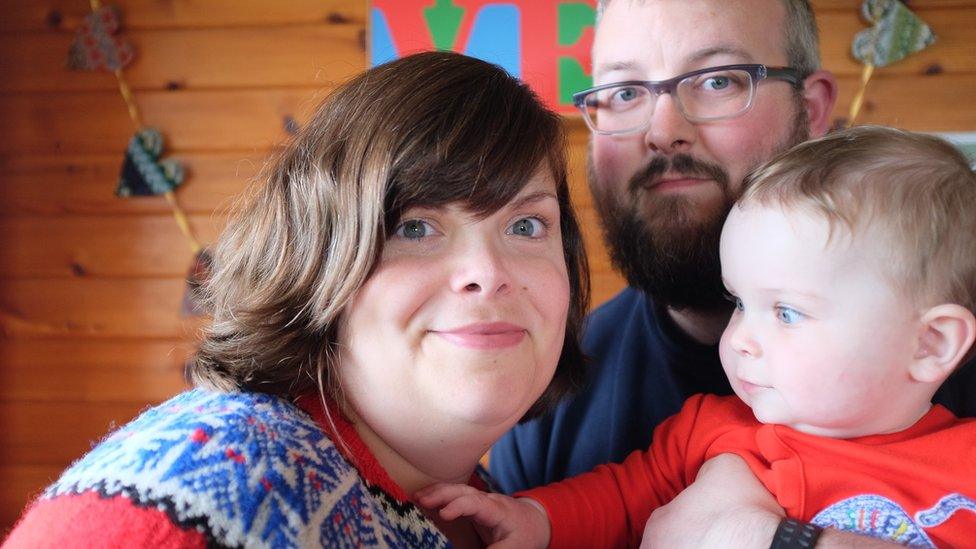
Sally Christie-Henry, pictured with her husband, Jamie, and son Hjalte
The couple have since had a child, a little boy, who is also a British citizen. They live in the Shetland Islands, off Scotland's north-east coast.
"This is our home," Sally said.
"I never felt I wasn't welcome in the UK before the referendum. I've always felt welcome in Scotland."
But the decision to leave the EU changed that. The Shetland Islands voted to remain by a 13% margin and Sally says her colleagues, friends and neighbours have all been at pains to make her feel welcome in the year since the result was announced.
"It's not the people here, it's the government," she said.
"From a political point of view we're made to feel like we're not as good as UK nationals.
"As far as I'm concerned, Theresa May has not made me feel less anxious. I feel more anxious."
Under the proposals announced on Monday by the prime minister, Sally would qualify for the new settled status because she has lived in the UK for more than five years. But she will have to apply for the right to remain in the country.
"I have to prove that I can stay," she said.
"And I have to pay. There's a financial implication for me for something that I couldn't vote on.
"There's been a lot of uncertainty. It's been a whole year now.
"We don't know what's going to happen with our rights until it's been negotiated.
"They're still not giving us a guarantee. They say they're giving us a guarantee but it's not.
"You're made to feel like you're a bit of a bargaining chip."
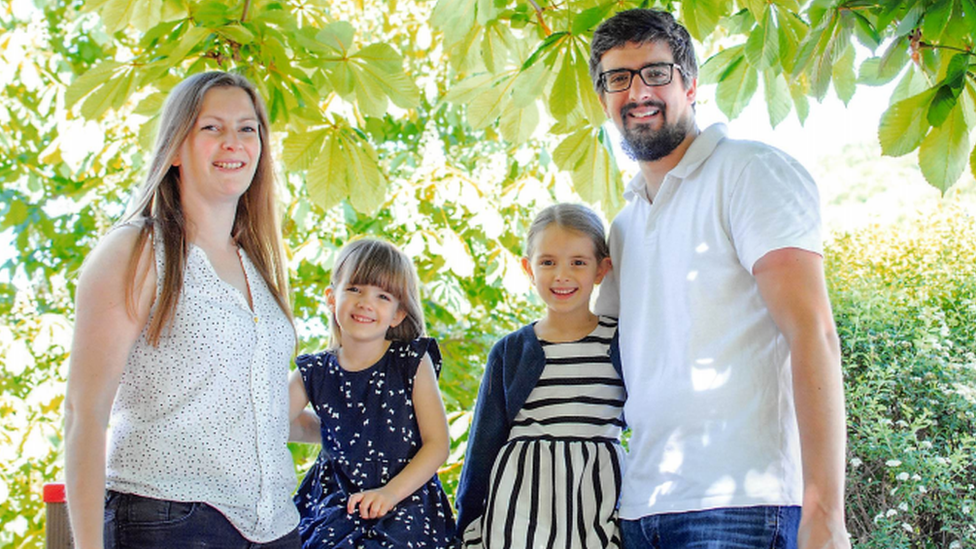
Brent lives with his family near Koblenz, Germany
Brent, who preferred not to give his surname, also told the BBC that he felt like he was being used as a "bargaining chip". But the businessman, a British citizen who has lived in Germany since the turn of the millennium, is unconcerned by that.
"I don't personally mind being used as a bargaining chip," he said.
"It's all up for grabs."
Like Sally, the EU's freedom of movement regulations helped him meet his partner. In 1999, Brent was working in an Ibiza hotel - "as the guy who encourages everyone to get in the pool" - when he met his future wife, who was on holiday with her family. He followed her to Germany a year later and they now have two children, eligible for both British and German citizenship.
"I've enjoyed the free movement aspect and it's been good for us," he said.
"The thing that most annoyed me about the referendum was not being able to have a say."
As Brent has lived in Germany for more than 15 years, he was unable to vote in the referendum or in the recent general election. As a British citizen in Germany, he is equally disenfranchised in German elections.
But despite those frustrations, he believes that the British government and the EU should be left to get on with negotiating the best possible deal. He says that as a businessman - Brent owns a motor-sport parts distribution company; business since Brexit has continued to be good - the government's cards have to be played close to their chest.
"We don't really know what's been said behind closed doors and I think that's where negotiations should take place," he said.
"I'm an optimist and I say let the government of the day sort these things out."
Since the referendum, the family has taken steps to secure British citizenship for their children. Brent believes that holding dual British and German citizenship will afford his children "the best of both worlds", but the family's not planning to move away.
"I'm not worried about having to leave," Brent said.
"We were never planning to go back to the UK - we've built a house here and I have a business here.
"I'm confident that money talks and these things are going to have to be sorted out."
By Chris Bell, UGC and Social News team
- Published26 June 2017

- Published27 June 2017
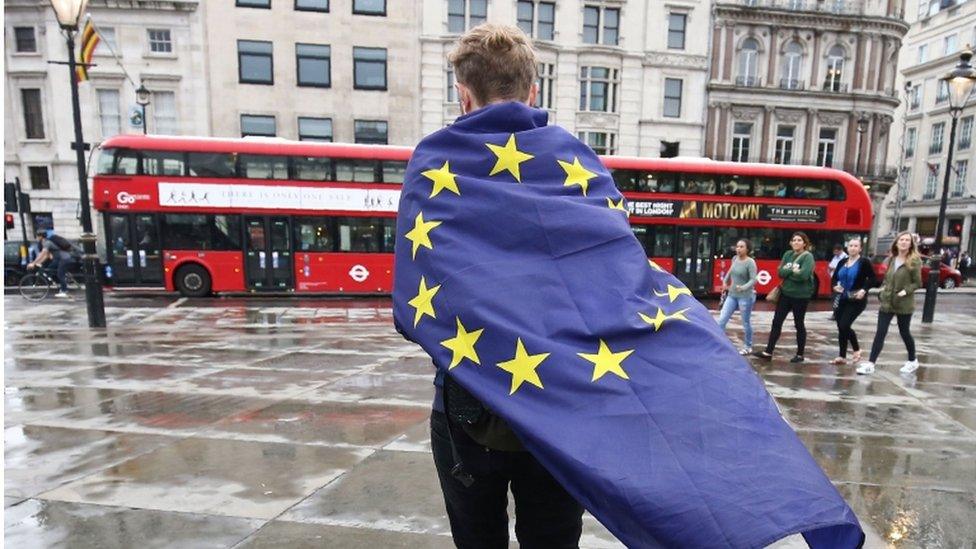
- Published24 June 2017
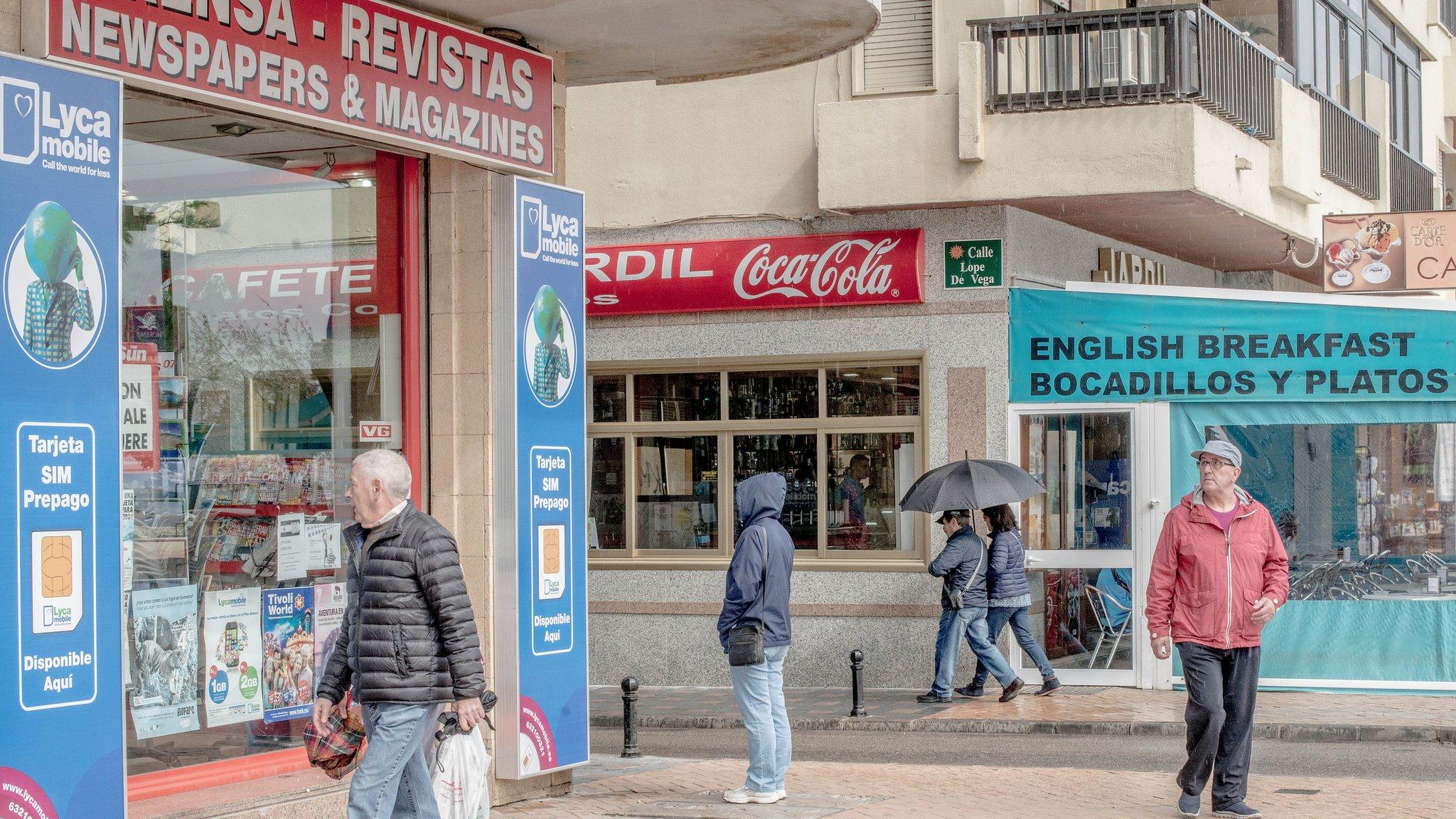
- Published23 June 2017
